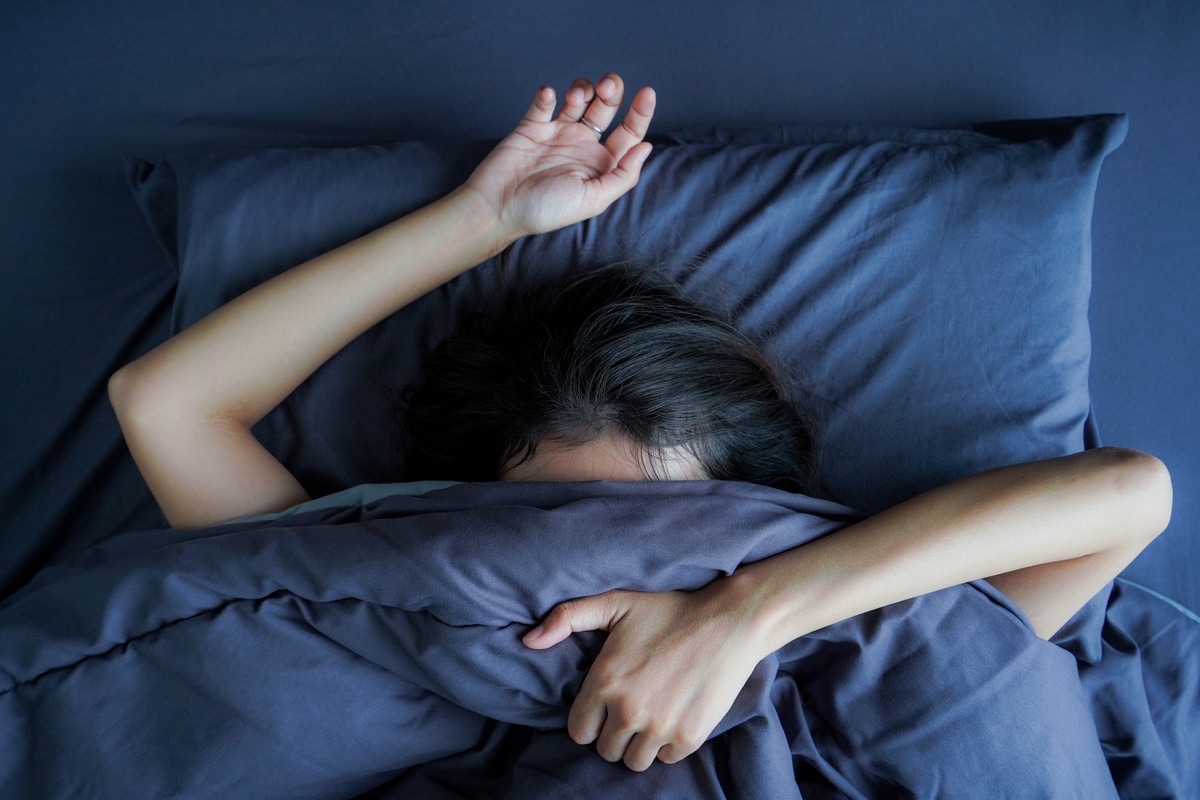
If you’re a shift worker, or you’re simply trying to catch up on some rest from a poor night’s sleep, you might find yourself struggling to get good quality sleep during the day.
And there’s a good reason for that.
Our bodies have been hard wired to follow the patterns of the day for thousands of years, using the day to find food and shelter, and taking advantage of the darkness to catch up on rest by sleeping during the night.
Nowadays, however, there are an increasing number of reasons why people might need to sleep during the day.
Here are some tips for sleeping during the day that will help you get the good night’s sleep you deserve.
5 Simple Tips For Sleeping During The Day
1. Avoid Caffeine
Caffeine is a stimulant that can temporarily make us feel more alert by blocking sleep-inducing chemicals in the brain and increasing adrenaline production, making it much more difficult to fall asleep.
In doing so, caffeine shortens the amount of deep sleep that your body requires, and increases light sleep, as well as more frequent awakenings.
In fact, if you are consuming caffeine six hours before bedtime, it can reduce your total sleep time by one hour.
If you’re planning on sleeping during the day, be sure to moderate your caffeine intake by avoiding coffee, fizzy drinks, energy drinks and chocolate before going to bed.
2. Keep Your Bedroom Dark & Cool
Setting up your bedroom correctly supports a better night’s sleep.
While some people seem to be able to sleep anywhere, for most people it’s best to get a good quality sleep in the right bedroom environment.
Investing in a set of blackout roller blinds can help to keep your bedroom dark during the day, and not only darken a room when you need them to, but also allow you to control the amount of light that enters the room when required.
Blackout blinds or curtains not only help to darken your bedroom, but can also help to regulate the temperature, preventing the room from getting too hot in the summer, or cold in the winter.
They also help to reduce the noise from passing cars or other sounds that can be frustrating when you’re trying to get some rest during the day.
A dark bedroom lets you relax and unwind, and signals to your mind and body that it is time to switch off, reducing the extent to which light can disrupt your body clock and sleeping pattern.
3. Exercise Regularly
Keeping active and getting regular exercise can help with getting to sleep, and as little as 10 minutes exercise can dramatically improve the quality of sleep, especially when done on a regular basis
People who exercise regularly feel less sleepy during their waking hours and often sleep better than someone who does not exercise.
Regular exercise may also help in reducing the risk of developing some sleep disorders, such as restless leg syndrome and sleep apnea, and can increase the amount of time you spend in the deep restorative sleep stages.
While it might seem counterintuitive, finding time for some HIIT or aerobic exercise can help to improve the quality of your sleep, as you have used up any excess energy.
If you can, exercising outdoors can be especially helpful, as this will allow your body to absorb natural sunlight during daylight hours, but it’s important not to work out too close to your bedtime.
Allow at least 3 hours before bedtime for a workout so that the exercise does not over-stimulate the body, speed up your metabolism, and increase your body temperature.
If you’re short on time, try some low impact exercise like Yoga, Pilates, or gentle stretching to your bedtime routine as these can help you to relax before bed, and promote a more restful sleep.
4. Try Meditation Or Mindfulness
If you have a tendency to overthink things, or you find when your head hits the pillow that your mind is still racing, then practising meditation or mindfulness might make it easier to sleep during the day.
It’s likely that most of us will have experienced a restless night’s sleep while we’re worried about something completely out of our control, and this can be a particular problem if you’re still relatively alert when you’re trying to sleep, such as when trying to sleep during the day.
Both meditation and mindfulness have been linked to an improvement in sleep quality, and regular meditation has also been shown to reduce blood pressure, control anxiety and reduce stress.
Nowadays there are apps like Calm and Headspace that offer guided meditations and mindfulness programs to help with many aspects of modern day life, and mindfulness meditation podcasts that can help you form your own habits and practices.
5. Invest In A Good Mattress
We spend about a third of our lives sleeping, so to make the most of that time it’s important to invest in a good mattress.
It’s commonly recommended that you change your mattress every 7 years, and if you’re finding it difficult to sleep during the day, or during the night, for that matter, it could be worth considering upgrading your mattress.
An old mattress can cause you to toss and turn more than normal during your sleep, causing all sorts of problems from just a poor night’s sleep to pain and discomfort from a sore back.
A comfortable, supportive mattress is essential for getting the best quality sleep.
Make sure you select the correct size, the bigger the better, king size is ideal if you have space in your bedroom; and be sure to speak to an experienced mattress company to find the correct firmness to give you the support you need.
The Bottom Line
Sleeping during the day can be tough, especially if it’s simply to catch up on a poor night’s sleep from the night before.
However, if you’re going to be sleeping during the day on a more regular basis, such as for shift work, then it’s worth investing in your bedroom to make sure your sleep is still the best quality it can be.
While finding the time to exercise might be more difficult if you’re on a non-traditional sleep schedule, sticking to a routine can help to solidify your new sleeping habits, and help you get the restful sleep you need.










